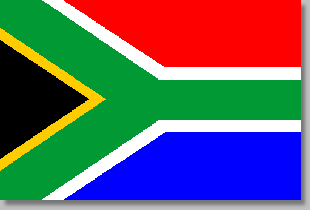

INTRODUCTION
Thank you for inviting me to join you, colleagues and friends.
I would like to take just a moment to congratulate a man with whom we have developed an extraordinary working relationship--Minister Valli Moosa.
Valli Moosa is someone whom I have looked to for his honest opinion, well thought-out views and integrity. He and his staff (Chippy and his colleagues) are playing an important and significant role in the historic democratic transformation of South Africa. We, at USAID, are very pleased to play a small role in this effort.
And...USAID will continue its support for your efforts to realize the constitutional mandate of developmental local government.
I. Historically, USAID has and will continue support to the Department of Constitutional Development's efforts to create an ENABLING POLICY ENVIRONMENT for developmental local government, aimed at improving the living standards of ALL South Africans.
Prior to the elections in 1994, we worked with the NGO COMMUNITY to help to train potential officials and to help them to examine policy alternatives. I am pleased to note that many leaders of those NGOs now hold key positions in local, provincial and national government, and they are driving the process of building developmental local government.
II. SINCE THE ELECTIONS, USAID has worked closely with national government; particularly, with the DCD, while continuing to provide assistance to provincial and local government, and the NGO community.
A. USAID's program with South Africa's national government is carried out under the broad framework of our R50 million bilateral agreement with the DCD.
Under these agreements, we have been supporting the DCD in its policy formulation efforts, including:
1) Support for the development of a formula to provide an equitable share of national revenue to ALL spheres of government;2) Support for the design and implementation of a legal and regulatory framework for municipal services partnerships.
By the way, I understand that yesterday, more than 800 local officials attended the national conference for the Equitable Share of National Revenues to local government. This is obviously a very positive development.
3) In terms of program implementation, we provided R15 million to support the Municipal Infrastructure Investment Unit and its Project Preparation Fund.
Through the MIIU, technical assistance is provided to local governments for the design and development of infrastructure projects, to be financed by the private sector, including municipal service partnerships.
Overall, these policy and implementation initiatives fit squarely within the framework of the LOCAL GOVERNMENT WHITE PAPER and is focused on DEMAND-DRIVEN ACTIVITIES OF THE MUNICIPALITIES.
4) NEW AREA OF ACTIVITY We have also supported the drafting of the recently-released "SUPPORT FRAMEWORK (that we heard about this morning) for the Implementation of the Local Government White Paper".
We are now working in the context of this SUPPORT FRAMEWORK--and in close collaboration with stakeholders--to design a 5 to 7 year, multi-million dollar program. The aim of this alliance is to support MODELS of DEMOCRATIC ENGAGEMENT for councillors, officials and constituents.
We look forward to continued collaboration with DCD, SALGA and provinces in the design and implementation of this effort.
III. COORDINATION
Consistent with USAID's philosophy, we have tried wherever possible to COLLABORATE and COORDINATE with others to support local governance initiatives.
My colleague from UNDP mentioned one such example of coordination between [the] UN and USAID.
I would like to mention a two recent examples of this successful approach:
First, USAID is participating with the British Department for INTERNATIONAL DEVELOPMENT in a joint effort for WITS University to provide training that leads to a Masters level program for local officials. Our other partners in this endeavor include Warwick University in the UK, Harvard University in the USA, and First National Bank (South Africa).
Second, we have joined energies with the KwaZulu/Natal Local Government Association, University of Durban-Westville and other important stakeholders to train mid- and senior level officials in that province, and intensive training will be provided over the next two years for more than 300 local officials in the province.
These are two excellent examples of partnership development and coordination in very important areas.
In addition, we work with NDI and IRI:
NDI
-Currently supporting SALGA, through:
+Institutional Strengthening
+Development of Models for Citizen Participation in Municipal Planning
-In Future:
+Support for [the] Policy Advocacy Unit to facilitate local
government inputs to the policy-making process.
IRI
-Local Government Capacity-Building in KwaZulu/Natal for:
+Strategic Planning
+Financial Management
+Local Economic Development
Focus is demand-driven by municipalities in the context of the White Paper.
CONCLUSIONS
We believe that a transformation model is developing here that will be useful throughout the world.
I encourage the DCD and its partners to continue efforts to maximize cooperation between the three spheres of government, non-governmental organizations, donors and the private sector.
So, the United States Government, through USAID, will continue to support [South Africa's] Capacity-Building Initiatives in Local Government
By Mr. Aaron Williams, Mission Director